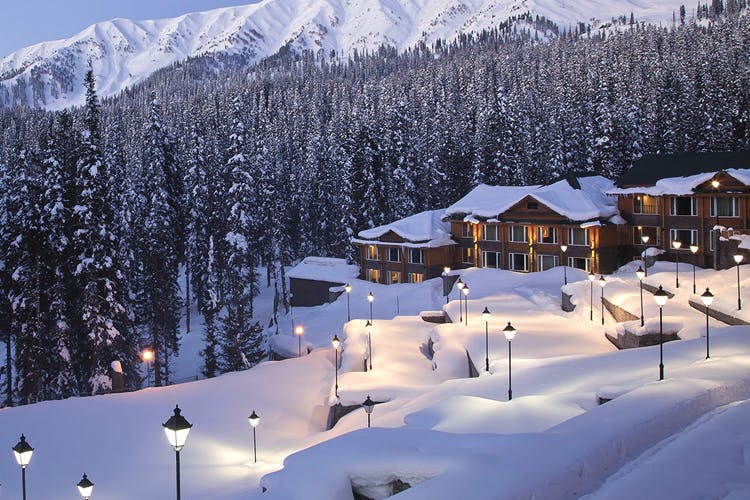Ski-resort town of Gulmarg in north Kashmir will be developed on the pattern of Switzerland’s Davos, a popular tourist destination which holds the annual World Economic Forum.
Situated in Baramulla district nearly 50 km away from Srinagar, Gulmarg is a major tourist attraction in the Kashmir valley and witnesses a huge inflow of visitors around the year, especially in winter.
According to officials, the Jammu and Kashmir administration will auction the land freed due to the expiry of the existing lease by following the Taj Hotel auction process.
Recently, the administration announced that it would take back the land for which the allotted lease has expired. As per officials, 58 out of 59 commercial structures like hotels and restaurants have lost their lease deeds in Gulmarg.
“All the outgoing lessees (except in the case of subsisting/expired leases for residential purposes) shall immediately handover the possession of the land taken on lease to the government, failing which the outgoing lessee shall be evicted as per the provisions of public premises (eviction of the unauthorised occupant) Act, 1988,” reads the J&K Land Grant Rules-2022.
The government will not renew the leases of outgoing lessees, and an online auction will be held to outsource the land.
The auction for new leases will be held at par with the auction process of the Taj Hotel at Man Singh Road in Delhi. “Nobody, including the Tatas, was favoured in any way. This is to ensure that the present occupiers are not deprived of any lawful right. The bidding process would be transparent and open to public scrutiny,” said a government official.
According to the rules, an empowered committee headed by the financial commissioner, revenue would identify and designate land and the purpose for the grant of the lease. It has been empowered to recommend the period of grant of lease, which shall ordinarily be for 40 years.
Lieutenant Governor Manoj Sinha recently said that the land laws in Jammu and Kashmir were regressive.
”The land laws in Jammu and Kashmir were very regressive. They were not framed keeping in view the interests of the common masses. We are doing everything that will help the local people of the Union Territory. Around 40 to 45 per cent of cases in various courts are due to land disputes.”

